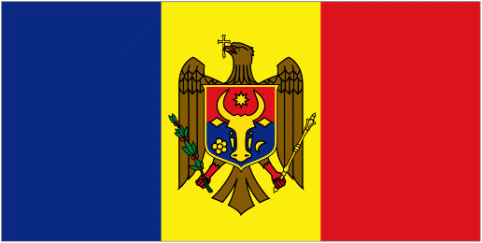By Jacques Bellezit
Yesterday, the Grand Chamber of the ECtHR has issued a judgement in the case Mozer c/Moldova & Russia.
Russia.
The facts of the case are “unfortunately” common (a detainee with precarious health, detained in poor conditions). The main issue was dealing with the jurisdiction of Moldovan and Russian governments in relation to a number of alleged violations of the applicant’s rights. Mr Boris Mozer was arrested for fraud by police officers of ‘Moldovian Republic of Transniestria’ (MRT).
This self-claimed State (Capital : Tiraspol) was established de facto on a narrow piece of land between Moldova and Ukraine in 1991, following the dislocation of the Soviet Union.
After the fall of the USSR, the Moldovans living on the eastern bank of Dniestr river, who use a russified version of Romanian, feared of being a minority within the new independent republic of Moldova, declared their independence. After a 142 days long war against the new Moldovan forces and the XIV Russian (ex-Soviet) army for the control of Dubăsari hydroelectric dam as well as strategic industries and ways of communication between the Transniestrian region and Moldova, a ceasefire was signed between Russia and Moldova on 21st July 1992.
Even if it’s not recognized as such, the MRT has all the institutions of a State : A Chief of State, a money (Transniestrian rouble), an anthem, a parliament….or seems to have.
Seems because it is the third time that the Grand Chamber of the ECtHR has stated that Russia had jurisdiction on the region, in accordance with a body of evidences developed in Ilascu, completed in Catan but also in ECtHR Ivantoc & others v/Moldova & Russia (15th November 2011).
This case law constitutes now what we could call a series of”Transniestrians cases”. Following ECtHR (Gr Ch) Ilascu & others c/Moldova & Russia (8th July 2004), ECtHR Ivanstoc & others v/Moldova & Russia (15th November 2011) and ECtHR (Gr Ch) Catan & Others v/Moldova & Russia, the Mozer case seems to cast in stone the legal status of the MRT as being definitely under the jurisdiction of the Russian Federation in a very clear formula: the ‘MRT’ is only able to continue to exist, and to resist Moldovan and international efforts to resolve the conflict and bring democracy and the rule of law to the region, because of Russian military, economic and political support”[1]
In the Mozer case, the Strasbourg Court, apart from recalling, in a very clear way, its specific view over the notion of “jurisdiction” under Article 1 ECHR (§96) developed inter alia in the Loizidou cases[2] in Bankovic[3] and Al-Skeini[4] which differ from the view of the International Court of Justice[5], discuss in fact the role of the Russian Federation.
If Russian jurisdiction was recognized in Catan and Iliascu, has the situation changed since then?
Russia, using the argument that the presence of military forces abroad is a very strong evidence of an extraterritorial responsibility of a Contracting State, argues that it has withdrawn its XIV Army from the RMT territory, leaving only less than 400 servicemen for “peacekeeping”[6] as well as ceased to recognize the RMT as an independent entity.
But the Strasbourg Court refused to take into consideration thoses arguments which do not seem to note in its eyes enough “independence”[7] between Moscow and Tiraspol.
What do we learn from the Mozer case? Beyond the single individual case of Transniestra which is, as I said, casted in stone as I do not think the Strasbourg Court would change its mind unless serious (but illusory) changes in the situation take place. We could even dare to say it has posed a presumption like in the famous Bosphorus case[8]. In the same way as the European Union law is presumed to be compliant with the European Convention of Human Righs, every breach of the Convention occurred in the RMT will be presumed to be accountable to Russia, unless strong evidences rebut this presumption.
Here is the link to the Mozer judgement.
(Jacques Bellezit is law student at the Law Faculty of Strasbourg (France). His areas of interest are Human Rights, political sciences, and military affair and international public law. He can be reached at jacques.bellezit@wanadoo.fr. This has been previously published on the author’s Linkedin page on 2/24/2016. This article is an expanded and more detailed version of the first one.)
___________________________________

[…] https://ilsquare.org/2016/03/04/ecthr-mozer-cmoldova-russia-a-final-round/ https://ilsquare.org/2016/01/28/sovereign-immunity-before-the-french-supreme-courts/ […]
LikeLike